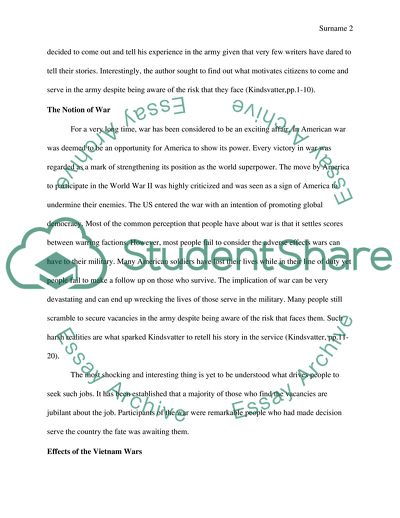Cite this document
(The Combat Contract to the Behavior of American Soldiers in World War Essay Example | Topics and Well Written Essays - 2250 words, n.d.)
The Combat Contract to the Behavior of American Soldiers in World War Essay Example | Topics and Well Written Essays - 2250 words. https://studentshare.org/history/1879403-apply-the-combat-contract-to-the-behavior-of-american-soldiers-in-world-war-ii-and-either-korea-or-vietnam
The Combat Contract to the Behavior of American Soldiers in World War Essay Example | Topics and Well Written Essays - 2250 words. https://studentshare.org/history/1879403-apply-the-combat-contract-to-the-behavior-of-american-soldiers-in-world-war-ii-and-either-korea-or-vietnam
(The Combat Contract to the Behavior of American Soldiers in World War Essay Example | Topics and Well Written Essays - 2250 Words)
The Combat Contract to the Behavior of American Soldiers in World War Essay Example | Topics and Well Written Essays - 2250 Words. https://studentshare.org/history/1879403-apply-the-combat-contract-to-the-behavior-of-american-soldiers-in-world-war-ii-and-either-korea-or-vietnam.
The Combat Contract to the Behavior of American Soldiers in World War Essay Example | Topics and Well Written Essays - 2250 Words. https://studentshare.org/history/1879403-apply-the-combat-contract-to-the-behavior-of-american-soldiers-in-world-war-ii-and-either-korea-or-vietnam.
“The Combat Contract to the Behavior of American Soldiers in World War Essay Example | Topics and Well Written Essays - 2250 Words”. https://studentshare.org/history/1879403-apply-the-combat-contract-to-the-behavior-of-american-soldiers-in-world-war-ii-and-either-korea-or-vietnam.


